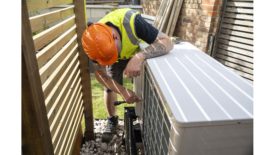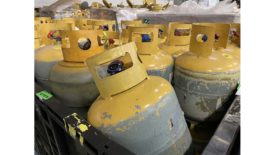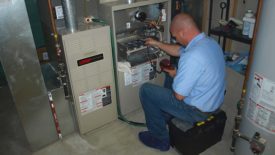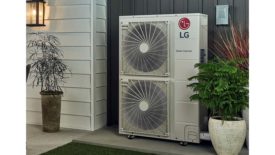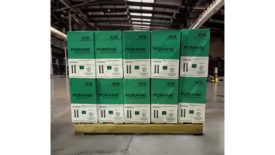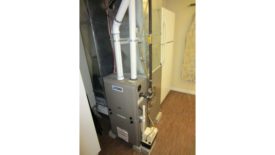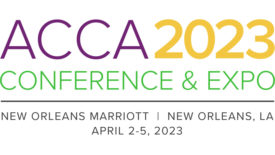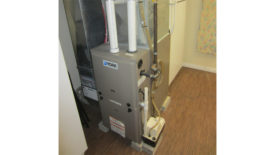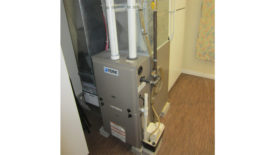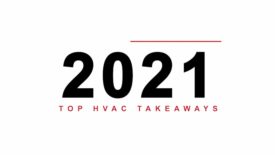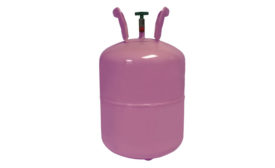- MEDIA GROUP
- NEWS
- MAGAZINE
- MEDIA
- REFRIGERATION
- BUSINESS 101
- RESIDENTIAL
- COMMERCIAL
- DIRECTORY
- MORE
- INFOCENTER
Directory & Buying Guide

HVACR industry directory of HVAC and refrigeration products, manufacturers, suppliers, wholesalers, consultants, associations and exporters.
Are you sure you want to leave before submitting your RFP?
Air Conditioning Contractors of America
Company Profile
Air Conditioning Contractors of America
1520 Belle View Blvd., No. 5220
Alexandria,
VA
22307
United States
Phone: (703) 575-4477
Fax: (703) 575-4449
https://www.acca.org
membership@acca.org
Contact
Christine Gibson, V.P.-Mktg. & Partnerships
(703) 824-8852
christine.gibson@acca.org
ACCA the national trade association furthering the interests of HVACR contracting businesses and the broader HVACR industry, serving more than 80,000 professionals and 3,000 businesses nationwide.
Industry Segment
- Contractors
- Consulting Design Engineers
- Energy
- Labor
- Manufacturers
- Standards, Codes
- Users
- Wholesalers
Product Categories
Articles
Inflation Reduction Act Included Incentives for High-Efficiency and Electric HVAC Equipment
Read More
Marijuana’s Legal Landscape
HVAC Contractors need to know local laws when addressing employee pot use, lawyer tells ACCA group
Read More
What the Overruling of the Chevron Doctrine Could Mean for HVAC Regulations
HVACR regulations more likely to be successfully challenged
Read More
Cashing In on Heat Pumps: A Primer on Incentives, Rebates, and Tax Credits
Understanding the Specifics Vital for HVAC Contractors to Stay Ahead of the Curve
Read More
How Will the Presidential Election Impact HVAC Tax Incentives?
With election, tax debate ahead, future of IRA's HVAC efficiency incentives is uncertain
Read More
The IRA’s Incentives at 2-Year Mark
Fans cheer public’s reception of residential HVAC incentives, but critics have issues with program
Read More
Loophole May Undercut Biden Proposal to Protect Workers From Heat
Rules Aside, Other Organizations Working to Protect HVAC Technicians From Heat Injury
Read More
How Small HVAC Contractors Can Compete Against Private Equity
To compete against big corporations, contractors must get creative
Read More
Heat Pumps Experiencing a Renaissance in Maine
Rebates, energy saving, and convincing driving a monumental change up north
Read More
How the New Overtime Rule Affects HVAC Contractors
Contractors will have to meet the new salary thresholds, or pay employees overtime
Read More
Sizing Heat Pumps For Colder Climates
Improper installation can lead to costly mistakes and uncomfortable homeowners
Read More
This Only Happens in the HVAC Industry
HVAC industry a great opportunity for younger generation
Read More
How a National Decarbonization Policy Could Impact the HVAC Industry
For a national policy to really work, technology would have to keep advancing
Read More
ACCA Panel: Brace For Change
HVAC industry to face more challenges ahead, but some see silver lining
Read More
Heat Pump Sales Slow, but Are Picking up Speed
Rollout seems slow but it’s just the beginning of heat pump momentum
Read More
HVAC Industry Responds To EPA’s HFC Management Rule
Stakeholders are concerned over issues ranging from training to tracking to reclaim
Read More
State of the HVAC Industry 2024: Contractors
Contractors Navigate Shifts in HVAC Residential, Commercial Markets
Workforce, price increases, and increased consumer knowledge among top trends for 2024
Read More
States Seek IRA Rebate Funding
But consumers have seen no money yet for high-efficiency HVAC purchases
Read More
EPA Extends Sell-Through Period, Easing Inventory Concerns
HVACR industry was initially displeased with parts of the final rule
Read More
Mandating High-Efficiency Furnaces Will Limit Consumer Choice, Critics in HVAC Industry Say
Furnace Rule ‘Doesn’t Pencil Out’
Read More
Contractors Share How They’re Capitalizing on the IRA
While the bill has gained an inordinate amount of hype, it bears asking: What impact is the IRA actually having on HVAC contractors’ bottom lines?
Read More
Court Scraps EPA Cylinder Rule
Decision is a win for HVACR groups, refrigerant cylinder manufacturer.
June 21, 2023
Tracking and Counteracting Residential HVAC Installation Faults
Preliminary DOE study reveals only 23% of newly installed residential HVAC systems are perfectly charged
Read More
5 Things HVAC Contractors Need to Remember When Installing Heat Pumps
Installers will play a vital role if heat pumps are to succeed
Read More
Four Factors that Influence Duct Renovation
Depending on duct location, duct losses often hide oversizing
Read More
Design Practices for Building and Modifying Duct Systems
HVAC ductwork: Set it and forget it, right?
Read More
Contractors Predict Growth in Service/Repair this Year
Slight dip in equipment sales could be offset by greater demand for service
March 27, 2023
ACCA, the Workforce, and the Inflation Reduction Act
Workforce issues remain the association’s top priority
Read More
2023 ACCA Conference & Expo Preview
ACCA conference is content-driven, with a number of social and networking events
Read More
HVAC Tax Incentives Enhanced in Sweeping Bill
Feds aim to promote efficient building methods, HVAC products
Read More
No Better Time to Offer Solar, EV Charging, and More
ACCA forum detailed how HVAC contractors can offer new services to take advantage of IRA incentives
Read More
Department of Energy May Bump Up Furnace Standards
ACCA, AHRI weigh in on plan that would phase out noncondensing models
Read More
HVACR Groups Wary of IRS Funding Boost
Increased enforcement, they say, could lead to more audits of contractors
Read More
HVAC Industry Fired Up Over Fossil Fuels
Groups seeking to phase out gas and oil appliances get some pushback
Read More
New Efficiency Standard Highlights Need for Matched Systems
Installing new HVAC equipment with older, non-compliant units can result in multiple problems
Read More
ACCA and State Associations
ACCA and state organizations work together through MOUs and the Allied Contracting
Read More
Billions in Electrification Rebates Coming
New program, with income guidelines, will be managed by the states
Read More
New Event will Introduce HVAC Contractors to Solar Opportunities
ACCA, Pearl See Bright Future in Solar
Read More
HVAC Industry Plans for New Incentives
Federal programs aim to promote higher-efficiency products
Read More
Bill Offers Incentives for Indoor Air Quality Improvements
But ACCA president says feds should take a broader approach to HVAC
Read More
Check on EPA Seen as Plus for HVAC Industry
SCOTUS decision sets tone for other federal regulatory agencies
Read More
HVACR Industry Fights Refrigerant Cylinder Changeover
Court brief says EPA overstepped authority in banning disposable cylinders
Read More
Expired Tax Credits Expected to be Renewed
Homeowners would get break for energy-efficient HVAC systems
Read More
The Unintended Consequences of Electrification
End users could find themselves with limited choices, higher electric bills, and less comfort
Read More
ACCA Celebrates Industry with First In-Person Conference Since 2019
Association hands out awards to those who promote HVAC industry
Read More
Supply Chain Issues Could Crimp Sales This Year
Obtaining HVACR equipment and components could be a challenge through 2022
Read More
Incoming ACCA Chairman Promotes Committees as Path to Getting Involved
Commercial HVAC contracting exec sees room for contractors of all types, sizes
Read More
HFC Phasedown Rule Creates Cylinder-Shaped Concerns
HARDI, ACCA critiques of DOE strategy focus on QC tracking and refillable requirement
Read More
Copyright ©2025. All Rights Reserved BNP Media.
Design, CMS, Hosting & Web Development :: ePublishing























